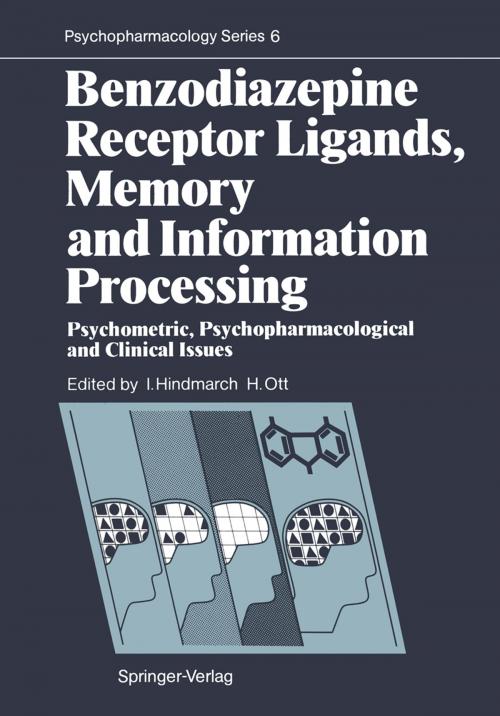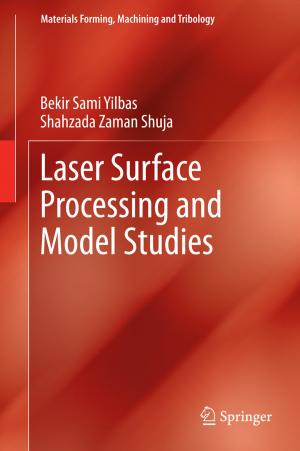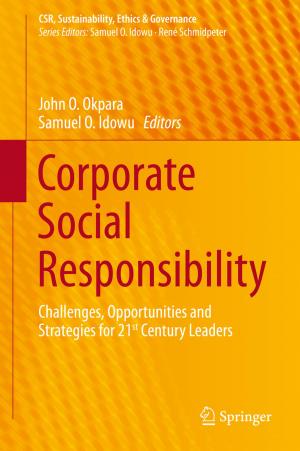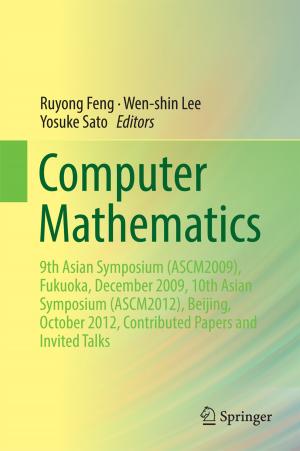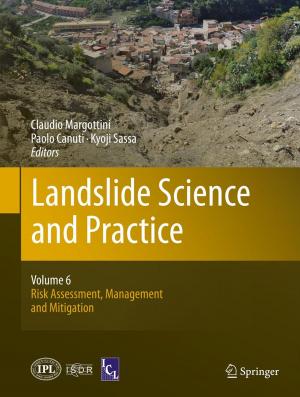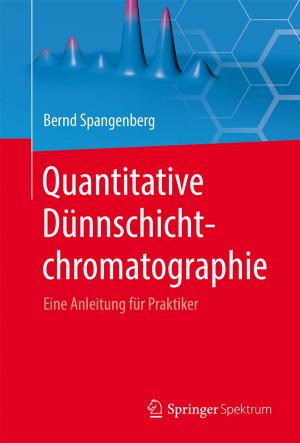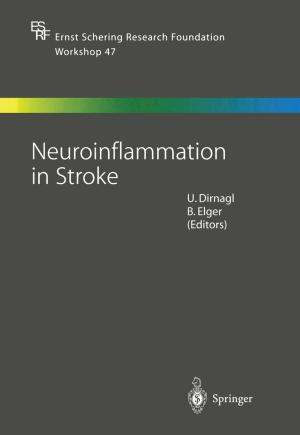Benzodiazepine Receptor Ligands, Memory and Information Processing
Psychometric, Psychopharmacological and Clinical Issues
Nonfiction, Health & Well Being, Medical, Medical Science, Pharmacology, Specialties, Psychiatry| Author: | ISBN: | 9783642732881 | |
| Publisher: | Springer Berlin Heidelberg | Publication: | March 12, 2013 |
| Imprint: | Springer | Language: | English |
| Author: | |
| ISBN: | 9783642732881 |
| Publisher: | Springer Berlin Heidelberg |
| Publication: | March 12, 2013 |
| Imprint: | Springer |
| Language: | English |
The following papers were presented at an international workshop on benzo diazepine receptor ligands, memory and information processing, held during the 15th CINP meeting in Puerto Rico in December 1986 and organised by the editors and T. Roth. This workshop was aimed at reviewing and reflecting on past experience with benzodiazepines, evaluating the current state of knowledge of the actions of psychotropic orugs (particularly benzodiazepines, fJ-carbolines and benzodiazepine antagonists), and laying a basis of interest and speculation for future research into the potential use of these drugs in disorders of memory and information processing. There is much published material regarding the theoretical underpinnings of what psychologists call "memory", and doubtless there will be several more libraries filled with theses on the topic before a consensus is reached as regards basic definitions or even meaningful distinctions between for example, "short" and "long"-term memory - everyone has his own particular theory. The qualitative and quantitative diversity of the different approaches might seem to present an insurmountable problem for the psychologist seeking a unified conceptual framework. In practice the various theories produce a plethora of pragmatic and experimental techniques for psychopharmacologists and clinicians to use when investigating drugs with putative amnestic or promnestic properties.
The following papers were presented at an international workshop on benzo diazepine receptor ligands, memory and information processing, held during the 15th CINP meeting in Puerto Rico in December 1986 and organised by the editors and T. Roth. This workshop was aimed at reviewing and reflecting on past experience with benzodiazepines, evaluating the current state of knowledge of the actions of psychotropic orugs (particularly benzodiazepines, fJ-carbolines and benzodiazepine antagonists), and laying a basis of interest and speculation for future research into the potential use of these drugs in disorders of memory and information processing. There is much published material regarding the theoretical underpinnings of what psychologists call "memory", and doubtless there will be several more libraries filled with theses on the topic before a consensus is reached as regards basic definitions or even meaningful distinctions between for example, "short" and "long"-term memory - everyone has his own particular theory. The qualitative and quantitative diversity of the different approaches might seem to present an insurmountable problem for the psychologist seeking a unified conceptual framework. In practice the various theories produce a plethora of pragmatic and experimental techniques for psychopharmacologists and clinicians to use when investigating drugs with putative amnestic or promnestic properties.
